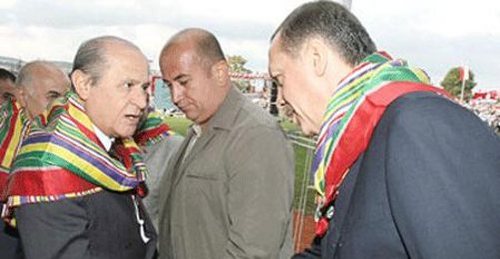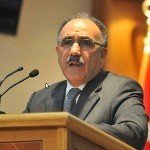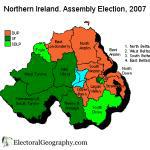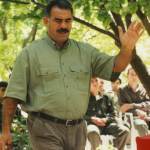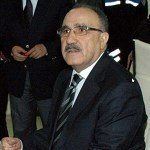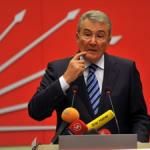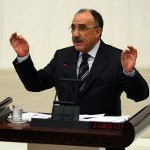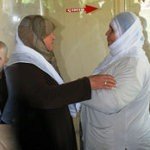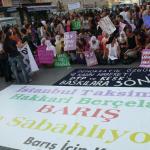Referring to the government's announced "Kurdish initiative", Prof. Dr. Büşra Ersanlı, of Marmara University's Political Sciences and International Relations department, expresses her support: "I want to be hopeful".
Ersanlı took part in a "peace watch" in the southeastern province of Hakkari last weekend and read the press statement there.
She has made suggestions as to how the Republican People's Party (CHP) and the Nationalist Movement Party (MHP), both of which have expressed their opposition to the initiative, may become part of the process for a solution.
MHP's support for the Uyghur
"I advise the CHP and the MHP to think carefully," said Ersanlı, pointing out that the MHP, for instance, was supporting the rights of the Uyghurs in the Xinjiang Uyghur Autonomous Region in China.
"If the MHP can look at its support for Uyghur rights and its protest against the oppression they face from the outside, it may understand the oppression that Kurds have faced in Turkey and their demands for rights, it may change its attitude."
In a statement yesterday (12 August), the MHP's party leader Devlet Bahçeli said that the government's Kurdish initiative and demands for education in the (Kurdish) mother tongue were "separatist". He also said that the constitution described all citizens of the country as "Turks".
His speech was full of accusations of "treachery".
Erdoğan criticised for ignoring their plight
At the same time however, Bahçeli has been quick to criticise President Recep Tayyip Erdoğan for not protesting sufficiently against the attacks on Uyghurs and of not making use of international mechanisms.
The party's deputy chair of the parliamentary group, Oktay Vural, had also criticised Erdoğan for "speaking with a Chinese mouth", adding, "If our party chair had not warned the public, then there would have been no East Turkestan or Uyghur Turks on the Prime Minister's agenda."
Uyghurs in China live in an autonomous region, a concept which Bahçeli vehemently rejects for Turkey.
Instead of using the official name of "Xinjiang Uyghur Autonomous Region", members of the MHP prefer to speak of "East Turkestan". On the other hand, they do not tolerate the term "Kurdistan" as a geographic term for the southeastern part of Turkey.
Again, while the MHP supports the right of Uyghurs to call themselves "Turkish", Bahçeli described the Kurds of Turkey as "Kurdish speaking" on his visit to the autonomous region in China as Deputy PM in 2002.
There is education in Uyghur from primary school to university in the region, and the dominant ethnic group of the Han is also instructed in the language.
Previous CHP reports on Kurdish question
As for the main opposition party in parliament, the CHP, Ersanlı suggests that party members review their own reports and documents prepared on the Kurdish question.
"The analyses in those documents are way ahead of today's. The CHP must remember this. It must also stop seeing the issue as a struggle with the ruling Justice and Development Party (AKP), must try to compromise with the AKP. Indeed, it should follow all the steps the AKP takes and push it take more radical steps."
Change is inevitable
The academic added that the AKP would have its limits, which means that others also have to raise demands of peace.
"They feel that they definitely have to do something and are making calculations. The international situation, the US withdrawal from Iraq, energy politics and the role of Iraqi Kurdistan and Baghdad have made it inevitable. With any government, not just the AKP, this would have happened."
A permanent solution, so Ersanlı, will be based on human rights.
AKP's pragmatism
The academic believes that the AKP is also influenced by the general elections coming up in 2011, or even by the possibility of early elections:
"In the local elections in March, they thought they would win in the provinces of Diyarbakır and Van, but they lost. Erdoğan's frequent Islamic references in his speeches are also a pragmatic calculation for votes. He thinks that he may take some of the votes from the Democratic Society Party (DTP). There are groups with strong religious ties among Kurds. In addition, such references also please the Baghdad and Kurdistan Regional Government." (TK/AG)





